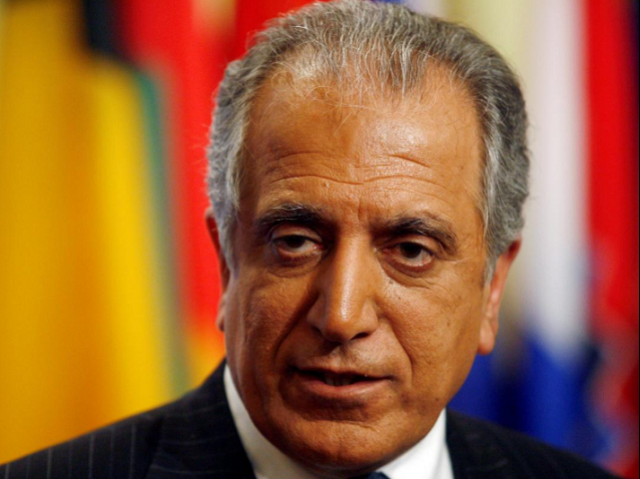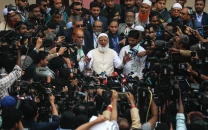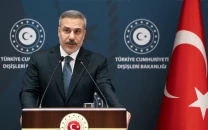US warns against spoilers as Afghan talks draw closer
Washington wants talks to start immediately after Taliban convey 'preparedness for negotiations within week'

In a series of tweets, Zalmay Khalilzad, Washington’s special envoy for Afghanistan, urged all sides to start the talks “immediately” and “prevent spoilers from undermining the process.”
“We welcome the Taliban statement specifying they will participate in IAN [intra-Afghan negotiations] within one week of the prisoner release commitment outlined in our agreement. Although many practical details need to be worked out, these developments are all very positive,” he said.
(3/4) We welcome the Taliban statement specifying they will participate in IAN within one week of the prisoner release commitment outlined in our agreement. Although many practical details need to be worked out, these developments are all very positive.
— US4AfghanPeace (@US4AfghanPeace) June 11, 2020
He said the intra-Afghan talks were a "key objective" of the US' diplomacy and hailed the ongoing prisoner exchanges that were a prerequisite for the negotiations.
Gen Qamar, President Ghani discuss Afghan peace process
“Prisoner releases have reached a new milestone. We welcome the government now having exceeded 3000 Talib prisoners released and the Taliban 500+. It is important that the process continues and the prisoners release roadblock resolved,” Khalilzad said.
(1/4) Prisoner releases have reached a new milestone. We welcome the government now having exceeded 3000 Talib prisoners released and the Taliban 500+. It is important that the process continues and the prisoners release roadblock resolved.
— US4AfghanPeace (@US4AfghanPeace) June 11, 2020
Earlier, the spokesperson for the Taliban’s Qatar office said the group was committed to the prisoner exchange process and “has preparedness to start intra-Afghan negotiations within [a] week.”
However, he reiterated that the government must release 5,000 Taliban prisoners -- as agreed in the Doha agreement with the US -- before the talks.
Last week, Abdullah Abdullah, the man tasked to lead Kabul’s negotiating team, said talks with the Taliban are likely to begin by mid-June.
Pakistan, another key player in the Afghan peace push, also seems to be preparing for the coming intra-Afghan negotiations.
Islamabad has appointed senior diplomat Mohammad Sadiq Khan, who served as ambassador to Afghanistan from 2008 to 2014, as special envoy to facilitate the peace process -- a move hailed by Kabul.
Earlier this week, Pakistan’s military and intelligence chiefs also visited Kabul to meet President Ashraf Ghani and Abdullah.
They “discussed current developments … [and] necessary steps to facilitate [the] Afghan led and owned peace process,” according to a statement issued by military's media wing, ISPR.
“The Afghan President also praised the role being played by Pakistan for [the] Afghan Peace Process,” it said.



















COMMENTS
Comments are moderated and generally will be posted if they are on-topic and not abusive.
For more information, please see our Comments FAQ